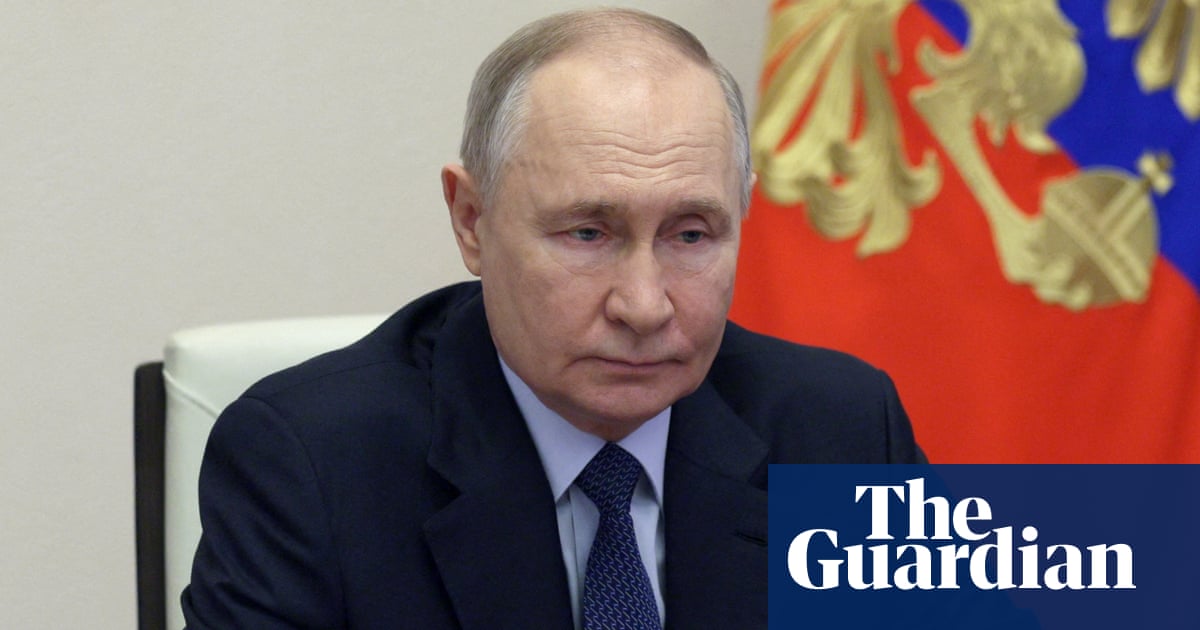International lawyers have “laid the foundations” for a special tribunal to try Russia for the crime of aggression, the EU has said, hailing a significant step towards holding Vladimir Putin and his top officials accountable for the invasion of Ukraine.
In a statement late on Tuesday, the EU executive declared a breakthrough that it said would mean the Russian political and military leaders “who bear the greatest responsibility” would be held to account.
The tribunal’s creation was initially proposed by Ukraine just days after the full-scale invasion, but for nearly three years lawyers have wrangled over finding the right courtroom.



It’s meaningless unless everyone is in on it, willing to be held to it and willing to go to war to enforce whatever ethical standards have been agreed. It’s pure theater.
And I didn’t know that it was a choice between international law and meddling in the lives of individuals.
That’s rather silly. If jurisprudence would only work if everyone was in on it there wouldn’t be any.
‘it says in your lawbook that killing is illegal, yet Mr Dahmer here disagrees, so it’s of the table’
Law is ingrained with our culture and it’s the shitty fact of life that it’s perennially imperfect as people always try to skirt it or circumvent it. That doesn’t mean it’s meaningless.
I don’t know how you came up with the meddling in the lives of individuals bit, though.
The situation you describe is different and actually proves my point because Mr. Dahmer, presumably lives in a nation, and in that nation in which he lives there must be some form of state or organization that is imposing that law. Even if he disagrees they can impose the law on him through some form of force. He can run, he can fight, but the organization is bigger and thus more powerful than him and as such can make him follow the law or force him to face the consequences. See also why billionaires may be above the law in some places: they are individually richer and more powerful than the organization that would hold them accountable.
On the international level, if a group of nations declare that invading other countries is a crime but 1 of them disagrees and starts an invasion, the crime can only be punished by force, ie war. You could impose penalties on them too, which is a type of force or power, but look at Russia to see how effective they are.
I am with you that the more countries take the international tribunal seriously, the better. Like I said its a great detriment that the country the idea was instigited in didn’t subject itself to its rule. If they had it would be much more effective and beneficial.
However dismissing the institution because of that and giving up on the idea alltogether is being defeatist. I think it very necessary to keep ethics and jurisprudence a part of the discussion of international affairs. For instance Israel may reject any jusrisdiction of the ICC. However the IJC delcaring the war in Gaza as genocide an holding Israel and Hamas responsible will mean that their leaders can be arrested in all 124 member states of the Rome Statute.
Even though they might not be aprehended and some countries have said as much, it still means that the prime minster of Israel is handicapped in his comings and goings and will think twice before traveling to such a country.
It does not mean that every bad guy gets punished. Most will get away with it. But I wouldn’t say there isn’t any power about being the first jewish prime minister standing trial for genocide. In the end ethics are a part of human understanding of history.